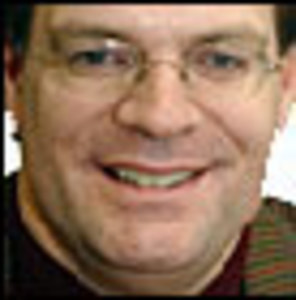
Will the Jean Charest magic work again in 2012? One of the recurring themes in coverage of the Quebec election outside the province is the seeming infallibility of the Liberal leader as a campaigner. Somehow, the story goes, Charest will muster his remarkable talents to win, against all odds, a fourth consecutive mandate as premier of Quebec.
For those who fear the return of the Parti Québécois to power, this may be a comforting prospect. After all, it worked the last three times, so why not once more? This time, however, Charest will have to defy the laws of political gravity to turn things around solely on the basis of a stellar campaign performance.
Among political scientists, it is common to argue that campaigns don’t matter a whole lot. In Quebec, however, we only have to look at last year’s federal election and our recent provincial contests to conclude that this argument doesn’t hold water.
This campaign will matter, but will it be enough? For Charest, probably not.
In most political forecasts, three simple factors determine whether an incumbent leader can muster his or her campaign talents to prevail in a close election: the state of the economy, the leader’s personal job approval rating and government fatigue.
After three elections and nine years in power, it’s clear that the Liberals face a huge challenge in overcoming the last hurdle. Indeed, a recent poll suggests that no less than one in five Liberal voters actually wants a change of government. The call for change is so compelling, in fact, that François Legault’s new party, the Coalition Avenir Québec, is running on little else, even if its program offers few real deviations from the policy course set by Charest’s Liberals.
The state of the economy is a more complex matter. Compared with many other countries or regions, Quebec’s economic performance since 1983 is nothing to be ashamed of. Quebec has not joined the ranks of the richest provinces like some others whose fortunes have been helped by the energy and resource booms, but the diversity of its industrial base has allowed it to weather economic storms surprisingly well, in part because the Charest government made an early start on infrastructure investments. More recent news has also been somewhat positive, as the latest jobs numbers show a decent improvement in 2012.
Yet there are clouds on the horizon. Most polls on economic matters in recent months have shown that Quebecers are apprehensive when they consider the direction of the economy and they have little confidence in the Charest government’s ability to fix it.
All in all, however, the main reason the Charest campaign magic is unlikely to work has to do with the dismal levels of satisfaction that have dogged his government for much of its mandate, and the vast imbalance in favourable and unfavourable opinions about the premier himself. Even if the Liberal party was unpopular in the months prior to the 2007 and 2008 elections, its leader could count on a modicum of receptivity in the electorate.
This year, a June poll indicated that twice as many Quebecers have a negative opinion of Charest (about 60 per cent) as those who have a positive view (about 30 per cent). When a politician’s numbers reach that level, it matters little if he can walk on water: most people will retort that he can’t swim.
Obviously, Charest is a gifted politician and he relishes the opportunity to test his skills, but the task of turning around undecided voters this time may be beyond his reach.
Campaigns often matter and this one is likely to see its share of shifts and surprises, but the negative perceptions of Charest and his government, notably on matters of ethics, are so strong that it won’t be enough.
Some may count on the less-than-stellar credentials of Pauline Marois in the leadership department, but the mutinies that almost sank her party are a thing of the past, and her capacity to outlast the dissenters in her party have significantly improved her image.
For Marois, the greatest problems — which may turn out to be Charest’s greatest assets — are the multiplicity of options available to those who wish to oppose the Liberal government and, of course, her association with an unpredictable student movement.
To perform a miracle this time, Charest will need more than a little help from his friends. He’ll need lots of help from his opponents.
***
Pierre Martin is a professor of political science at the Université de Montréal.
Odds stacked against Charest this time
Élection Québec 2012 - récit canadian

Pierre Martin50 articles
Pierre Martin est professeur titulaire au Département de science politique de l’Université de Montréal et directeur de la Chaire d’études politiques et économiques américaines (CÉPÉA). Il est également membre du Groupe d’étude et de recherche sur la sécuri...
Cliquer ici pour plus d'information
Pierre Martin est professeur titulaire au Département de science politique de l’Université de Montréal et directeur de la Chaire d’études politiques et économiques américaines (CÉPÉA). Il est également membre du Groupe d’étude et de recherche sur la sécurité internationale (GERSI)


















Laissez un commentaire Votre adresse courriel ne sera pas publiée.
Veuillez vous connecter afin de laisser un commentaire.
Aucun commentaire trouvé